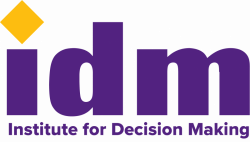Six Tips for High Intern ROI
Your intern just showed up for her first day…now what? EDO’s, chambers, CVB’s and Main Street organizations are ripe with opportunity for college and high school students to gain real world experience and build their professional portfolios. While you undoubtedly get that your constant flow of projects, reports, meetings, events, proposals, site visits and business calls has much to offer your new protégé, slowing down to make assignments, explain processes and mentor may seem more stressful than it is worth. Here are six tips to help get your relationship off on the right foot and make sure the internship is beneficial to all parties involved.
- Prepare for your intern – Before you ever post an opening or respond to a student’s inquiry, determine what specific duties and projects an intern could be involved with in your organization. Developing an internship “job description” will allow you to think about upcoming projects, events and timelines and how an intern can fit into your system.
- Remember the difference between an intern and a “temp” – An internship is not a cheap way to get help. Education and experience are the first priorities. That said, establish performance expectations, identify outcomes and make sure your student understands the difference between working on a class project and becoming part of a professional team.
- Establish an orientation, training and welcoming period – Some students may never have held a job, worked with adults or attended a business community meeting. Allow time for the student to simply get up to speed about what your organization does and who it serves. Consider having them interview staff or volunteers about the purpose and mission of the organization.
- Keep in touch – Do not have your intern start the week before you leave town for a conference! Recognize that the relationship created in the first weeks of an internship will often dictate the likelihood of success. Weekly staff meetings seldom allow enough time for answering questions and mentoring. Daily briefings build rapport and confidence all around.
- Do not assume prior knowledge of anything – Encourage copious note taking when discussing projects or processes and provide a backup line of communication if they happen to run into challenges. Also make sure you give the student time to ask you and your staff questions they might have throughout their time working with you.
- Be a mentor and promoter of the profession – A well planned internship can be a very positive experience for your organization. Thorough preparation requires you to think about aspects of your operations that you may take for granted or which need improvement. Similarly, your role as a mentor and educator allows you to see your team and management style through the eyes of others. Creating awareness of the field of community and economic development through internships is one of the best ways to recruit new talent and enthusiasm into the profession.

